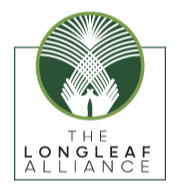News
Prescribed Fire Effects on Water Quality in the Southern Appalachians April 22nd, 12:00-1:00 EST
Kipling Klimas (Utah State University) will discuss his work assessing the impact of prescribed fire on high value forested watersheds in the southern Blue Ridge Mountains.
Upcoming Webinar: Introduction to the Southeast FireMap
A free webinar for practitioners and the public to learn about the Southeast FireMap with representatives from USDA-NRCS, Tall Timbers Research Station, the Longleaf Alliance, the Southern Fire Exchange, and the University of Florida.
Prescribed burning in wooded areas
John Weir from the Oklahoma State University explains the value of prescribed burning in oak forests -- and describes the differences in burning needs that exist between Eastern and Western Oklahoma.
Northern Bobwhites and Fire: A Perfect Match
Prescribed fire, bobwhite ecology, and local site conditions need to be aligned for optimal bobwhite population response. This course discusses the context of fire frequency, scale, and seasonality for bobwhite management and restoration.
SFE Lessons Learned from Learn-n-Burn Events
"Learn and Burn" workshops are an excellent way for private landowners and others to gain hands-on burning experience and knowledge from expert mentors. This webinar will provide some lessons learned from coordinating these events, and tips to putting one on in the future. Participants will be provided with a template checklist, examples of past agendas, ideas for potential partners and funding opportunities, suggestions on how to measure program impact, and successes from past events.
Timber Management and Prescribed Fire
Joe Marschall (Oak Woodlands and Forests Fire Science Consortium) moderates a panel of fire professionals and timber management specialists to discuss results from research and personal experience of combining prescribed fire with timber management.
Fire and a Changing Climate - Fueling Collaboration
Webinar from the Fueling Collaboration Series. Jenifer Bunty (Consortium of Appalachian Fire Managers & Scientists/Clemson University) moderates a panel of fire professionals and climate change specialists. They discuss how to incorporate climate change predictions/models into forest and fire management and give updates on the latest fire science and climate change research.
Fire in Wetlands: Fire Ecology and Prescribed Fire Tactics
The following webinar provides insight on prescribed fire tactics in wetland ecosystems. Developed by the Southern Fire Exchange, the Ocala National Forest and the University of Florida.
LANDFIRE office hour chats
SFE Webinar: Introduction to the SE FireMap 1.0 - A New Tool to Map Fires Across the South
The SE FireMap 1.0 is a new fire mapping system for the Southeastern United States. Developed with funding provided by the USDA NRCS, SE FireMap uses a remote sensing-based approach to track both prescribed fire and wildfire activity on public and private lands across the range of the longleaf pine.
Cal FIre Incidents
The California Department of Forestry and Fire Protection (CAL FIRE) responds to all types of emergencies. When the Department responds to a major CAL FIRE jurisdiction incident, the Department will post incident details to the web site. Major emergency incidents could include large, extended-day wildfires (10 acres or greater), floods, earthquakes, hazardous material spills, etc. This is a summary of all incidents, including those managed by CAL FIRE and other partner agencies.
They Know How to Prevent Megafires. Why Won’t Anybody Listen?
This is a story about frustration, about watching the West burn when you fully understand why it’s burning — and understand why it did not need to be this bad.
You're Invited! Perspectives on Prescribed Fire Management in Longleaf Pine Ecosystems
SE CASC & South Atlantic Spring/Summer Science Series July 16 2020.
National Association of State Foresters Weekly Newsletter July 3, 2020
NASF releases COVID-19 stimulus platform, backs bill to improve GNA...
Introducing Burner Bob - A Cool Dude with a Hot Message!
Burner Bob - A Cool Dude with a Hot Message!
Igniting Inspiration for Women in Fire
If our use of fire for managing lands is to improve and expand in the United States, it will need to involve more women and diverse perspectives. Thanks to programs like Women-in-Fire Prescribed Fire Training Exchanges (WTREX), more women are participating in and leading controlled burns.
Fighting Fire with Fire: Can Fire Positively Impact an Ecosystem?
Wildfires occur naturally when lightning strikes a forest or grassland. Alternatively, controlled burns, also known as prescribed fires, are set by land managers and conservationists to mimic the effects of natural fires.
WFSU FM Florida-Perspectives: Prescribed Burns
The recent and devastating fire near Eastpoint in Franklin County has led to a larger discussion about prescribed burns. Talking about it are: Kevin Hiers and Dr. Kevin Robertson from the Tall Timbers Research Station; and Dr. David Godwin with the Southern Fire Exchange at the University of Florida.
Driptorch Digest No. 45 June 2020
A Newsletter for the Southern Prescribed Fire Community
National Extension Wildland Fire Initiative Quarterly Meeting
Join the National Extension Wildland Fire Initiative for our quarterly Zoom meeting. This meeting will feature brief presentations on emerging wildland fire Extension projects in Pennsylvania and Florida. We will also discuss ways NEWFI members across the country have adapted to offering wildland fire programming remotely due to restrictions related to COVID-19.


























